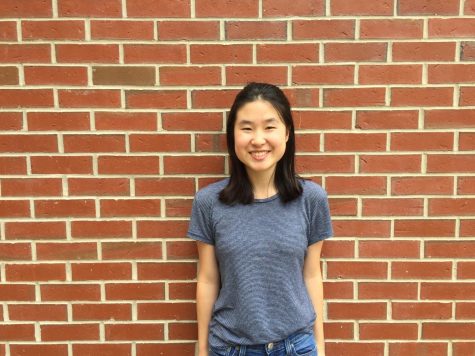Imagine waking up one day to discover that an acquaintance at school has killed herself.
The Netflix original television series “13 Reasons Why” has garnered much attention and spurred controversy because of its handling of topics such as suicide and rape. The series, based on a novel by Jay Asher, premiered on Netflix on March 31 and has since been a headlining news story and topic of conversation because of concerns about the harmful effects watching the show may have on adolescents.
The show follows teenager Hannah Baker, who commits suicide, shocking her community. Before doing so, she creates thirteen audio tapes for ex-friends, ex-love interests and acquaintances to explain why they are one of the reasons she killed herself. The tapes circulate among the characters as they each discover further insights into Hannah’s life and the impact they had on her.
The controversy surrounding the show led Superintendent Christine Johnson to send out an email on May 2 to parents to encourage them to speak with their children about the show’s content.
Adjustment counselor Deb Guterman weighed the benefits and harmful elements of the show.
“I think with anything that’s controversial, one of the benefits is that it generates some discussion, but in this case I think the potential harm could outweigh the benefits,” Guterman said.
The scene in which Hannah commits suicide was deemed extremely graphic and critics have claimed it romanticizes suicide and self-harm.
Guidance counselor Lisa Connery also sees the danger in a television series such as this.
“I am concerned that students would be watching a show that would send any kind of a message other than the fact that suicide is never an answer instead of encouraging students to seek out help,” Connery said.
“I mean if you get those kids who are really searching for acceptance seeing Hannah’s story and hearing about her in the tapes and all that, they might fantasize,
‘I’ll be missed’ and ‘everybody will be in disarray because I’m gone,’” health teacher Melissa Arvanigian said.
Connery discussed the support that Algonquin offers to students who may be contemplating suicide, such as help contacting parents, specialists or even the police if necessary, and giving them access to therapy and outside resources.
“I think a lot of kids are not aware of the frequency with which we deal with suicidal ideation with students,” Connery said. “We take it very seriously. We seek out students immediately if we have significant concerns about them.”
“In a preventative sense, I think we do a good job connecting with kids and making sure that we build some trust with them,” Guterman said. “We make our offices friendly spaces that students feel welcome and comfortable in.”
According to the 2016 MetroWest Health Survey which Algonquin participated in, fifteen percent of females and nine percent of males reported suicidal ideation.
On the other side of the issue, however, there are many viewers who believe the show is helpful in creating a platform to talk about important issues such as suicide.
Junior Rowan Moreland described the emotional effects of the show.
“I think [the show] represented real high school issues well and brought to light issues everyone should be aware of, but I think it did so in the most damaging way possible,” Moreland said. “It did what it was meant to do, but in a way that was harmful and hard to watch.”
Another controversial part of the series is the two rather graphic portrayals of rape and its attempt to show the gray area of what is considered “consent.”
Sophomore Sean Neusch discussed the graphic nature of some of the scenes and consent.
“I personally think that it was a good idea [to include the graphic suicide and rape scenes] to really just hit people,” Neusch said. “I don’t know if I’ll forget that.”
Connery emphasized the support and resources Algonquin has in place for victims of sexual assault in comparison with the lack of support from the school in the show.
“We do become aware of students who have experienced sexual assault,” Connery said. “We do have referrals in place [for outside counselors and specialists] if students come talk to us.”


